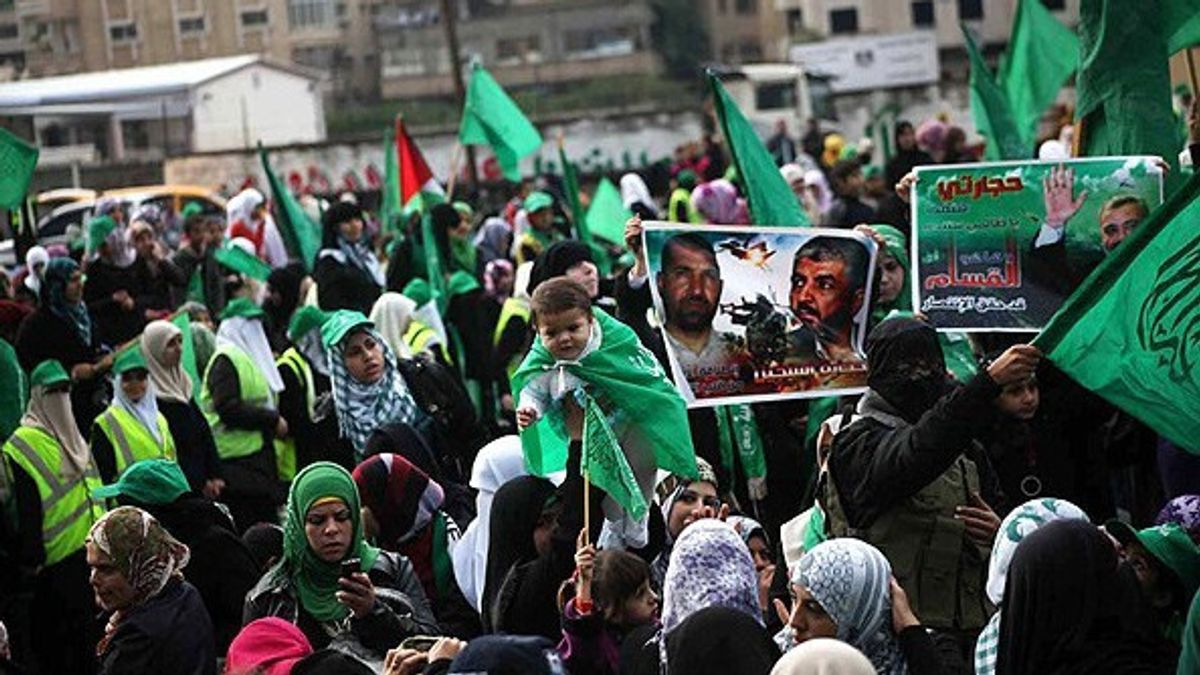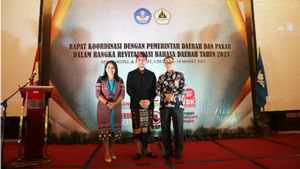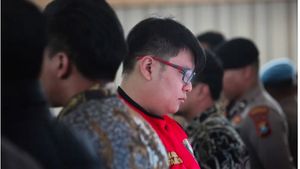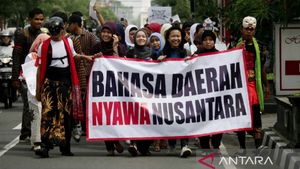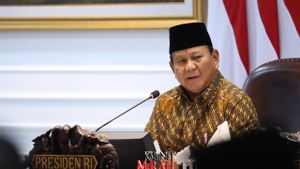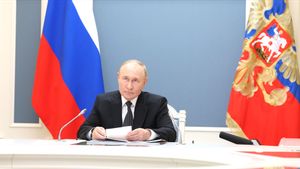JAKARTA – In the midst of the outbreak of war between Hamas and Israel since last week, the Palestinian government issued a surprising statement, calling Hamas not the Palestinian government.
This was said by the Palestinian Ambassador to England and advisor to President Mahmoud Abbas, Husam Zomlot. In an interview with the BBC, Zomlot appeared emotional and angry with a journalist because he was asked whether he supported Hamas' attacks on Israel.
“Hamas is a militant group. You talk to Palestinian representatives and our position is very clear," said Zomlot.
“This is not a question of supporting or not supporting. I am here to represent my people, the Palestinian people, in what is happening. I'm not here to send anyone.
“Hamas is not the Palestinian government,” Zomlot emphasized.
Wants to Establish an Islamic State in Palestine
The question addressed to Zomlot referred to Hamas' war against Israel which broke out on Saturday, October 7 2023. Hamas suddenly launched an attack on Israel by land, sea and air, killing 1,300 people. Not only that, Hamas also took hundreds of people hostage.
But why does the Palestinian government seem not to provide support to Hamas?
In the midst of the struggle to regain their land, the Palestinian people are also faced with internal conflict in their own country. This internal conflict involves Hamas and the Palestinian government.
Basically, Hamas was formed because of the dissatisfaction of some Palestinian people with the diplomatic struggle of existing Palestinian resistance organizations, such as the Palestine Liberation Organization (PLO).

The origins of the formation of Hamas have existed since the 1970s. Initially, Hamas' activities were far from violent. They instead began building a network of charities, clinics and schools in the Israeli-occupied territories after the Six Day War in 1967. Hamas activities in the Gaza Strip focus on various mosques, while in the West Bank they focus on universities.
However, then a small group emerged in the occupied territories who called for jihad or holy war against Israel. According to a number of sources, Hamas was founded in 1987, after the first intifada against the Israeli occupation of the West Bank and Gaza Strip.
Hamas was founded in Gaza by an imam, Sheikh Ahmed Yassin and his aide, Abdul Aziz al-Rantiissi. Hamas is an Arabic acronym for Harakat al-Munqawama al-Islamiya which means Islamic Resistance Movement. In Arabic, Hamas also means 'spirit'.
Hamas has the goal of liberating Palestine from Israeli occupation. But more than that, Hamas also wants to establish an Islamic state from the Jordan River to the Mediterranean Sea.

This long-term goal is what makes Hamas not get along with its political rival, Fatah. Because even though they both have the goal of freedom and full rights to a Palestinian state, Hamas and Fatah have different methods to achieve this goal.
Fatah advocates a peaceful solution with Israel. Its leaders support a two-state solution and prioritize the negotiation process. They also do not support armed struggle.
“Hamas and Fatah both dream of an independent Palestine. "However, Hamas wants to establish Palestine as an Islamic state, while Fatah is secular," said Gadjah Mada University (UGM) Middle East observer, Siti Mutiah Setiawati at the DIHI UGM Talks event entitled Hamas-Israel 2023: A New Chapter of Conflict or Peace in the Middle East? online on Friday (13/10/2023).
Labeled As a Terrorist Organization
Tensions between Fatah and Hamas increased in 2005 following the death of the Chairman of the PLO Organization and President of the Palestinian National Authority, Yasser Arafat in November 2004.
Since 2006, the conflict between Fatah and Hamas has dominated Palestinian political climate. Hamas surprisingly won the Palestinian Authority's parliamentary elections for the Palestinian Legislative Council. This victory also marked the end of the era of Fatah's dominance.
There was an armed conflict between these two factions which divided the government. Internal conflict in Palestine continued until they became divided politically and territorially since 2007. In June of that year, Hamas fighters took control of the Gaza Strip and fired all Fatah officials.

Hamas took over the Gaza strip in June 2007 and became the de facto governing authority. Meanwhile, Fatah, which controls the Palestinian Authority, controls the West Bank A and B.
Since taking over the Gaza Strip, Hamas has been involved in several wars with Israel, including the current one. As a result, Hamas is considered a terrorist organization by a number of countries, such as the United States, Israel, Britain and the European Union.
On the other hand, the Palestinian National Authority, which represents Fatah, is recognized abroad as the civilian government in the Palestinian territories.
Deep tensions between Hamas and Fatah continue today, amidst Israeli and Palestinian peace efforts.
SEE ALSO:
According to Siti Mutiah, it will be difficult to achieve peace between Palestine and Israel when the two ruling parties are still involved in internal conflict. Moreover, the Jewish people in Israel are also not free from internal conflicts involving the Likud Party and the Labor Party.
“The internal problems of Palestine, between Hamas and Fatah, and the Jewish people have made it difficult for the Palestinian-Israeli conflict to find a way to peace. "It is best for these parties to resolve internal problems before resolving problems at a higher level," concluded Siti Mutiah.
The English, Chinese, Japanese, Arabic, and French versions are automatically generated by the AI. So there may still be inaccuracies in translating, please always see Indonesian as our main language. (system supported by DigitalSiber.id)
